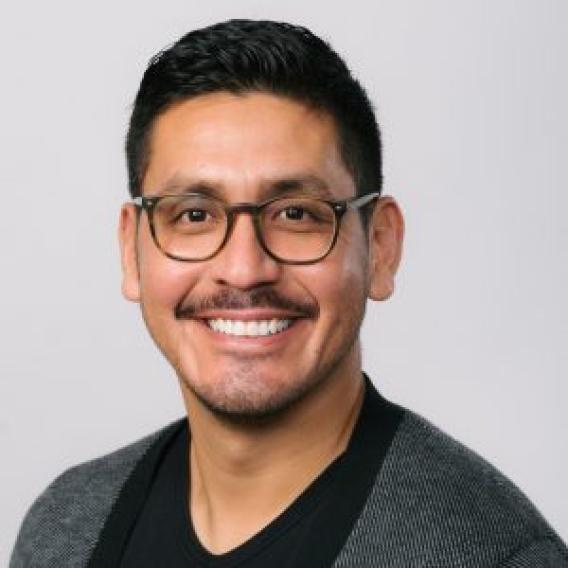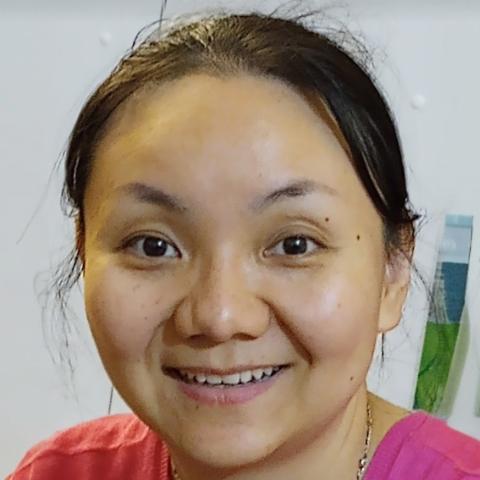Find your path
Choose the tab below that best describes your experience or interests.
PhD
The PhD program focuses on the development of advanced methods in statistics and measurement.
• Engage in the impactful science and practice of educational measurement and statistics
• Gain a solid foundation in coursework related to statistics, educational measurement, and research methods
• Work with faculty with supportive mentorship and cutting-edge expertise to become a rising star in academia or industry
MA
This program utilizes a cohort model that develops your knowledge and skill set related to research methods, statistics, and educational measurement, as well as cognitive and social psychology. The cohort model engages you in an academic community through shared coursework and regular meetings with faculty from QME as well as psychological foundations of education to help you develop as a scholar and researcher.
The cohort will also pair with a community partner (e.g., school district, not-for-profit organization) to undertake a shared research project. With the support of your MA mentors, you will work together with that partner to dive deep into the research problem by reading and synthesizing relevant literature, planning out the research process, and collecting and analyzing the data. This work will serve as the basis for your MA paper. The program culminates with you presenting your findings to the community partner, relevant stakeholders, and other faculty in the program.
The coursework and experiences in this program will set you up to succeed in the workforce or in further graduate study. For more information contact Andrew Zieffler (zief0002@umn.edu).
Minor
The Department of Educational Psychology offers a minor in educational psychology with an emphasis in quantitative methods in education.
Careers
- Test publishing firms
- Teaching and research at colleges and universities (PhD only)
- Research and evaluation centers
- Public school systems
- State departments of instruction
- Private industry
Program requirements
EPSY 5221 Principles of Educational and Psychological Measurement
EPSY 5224 Survey Design, Sampling, and Implementation
EPSY 8226 Applications of Item Response Theory Models
ESPY 8265 Factor Analysis
EPSY 8251 Statistical Methods in Education I
EPSY 8252 Statistical Methods in Education II
EPSY 8266 Statistical Analysis Using Structural Equation Methods
EPSY 8264 Advanced Multiple Regression Analysis
EPSY 8282 Statistical Analysis of Longitudinal Data
Application information
Deadlines
Submit your application for the fall semester following the deadlines below. Note the dates are the same for both MA and PhD applicants.
December 1
To be considered for fellowships and departmental financial assistance, application materials must be submitted to the program and the Graduate School by the December 1 deadline.
March 1
If you're not seeking a fellowship or departmental financial aid, you have until March 1 to submit your application materials.
The QME program strives to provide funding opportunities to all incoming students. While we can’t typically guarantee funding, over the last five years, we have been able to fund over 95% of our students that were looking for funding (including our MA students)!
Tuition
Visit the College of Education and Human Development's Finance and Funding page for information on tuition.
Fellowships and awards
Submit your application materials by the December 1 deadline, and you’ll automatically be considered for Graduate School fellowships and departmental awards based on scholastic achievement. Notification of awards will be sent in March.
Note: Spring, summer, and fall (March deadline) applicants will not qualify for fellowships.
Graduate assistantships
Get paid to work as a teaching assistant, graduate instructor or research assistant. Graduate assistantships are available through the department, College of Education and Human Development, and the University.
Note: Applicants who complete their applications by the March 1 deadline will be less likely to receive graduate assistantships than students who meet the December 1 deadline.
Additional funding
Visit the College of Education and Human Development's Finance and Funding page for more information on funding.
Financial aid
Visit OneStop Student Services for more information on available financial aid.
Labs
Longitudinal Methods Development (LMD) Lab
Nidhi Kohli is the lab director for the LMD Lab.
Lab Advancing Statistics Education Research (LASER) Lab
Student peer-reviewed publications
Kim, N., Deng, J., & Wong, Y.L. (2025), Digital module 37: Introduction to item response tree (IRTree) models. Educational Measurement: Issues and Practice, 44(1), 109–110. https://doi.org/10.1111/emip.12665
Zhang, Z., Kohli, N., & Lock, E. F. (in press, 2024). Bayesian (non)linear random effects mediation models: Evaluating the impact of omitting confounders. Psychological Methods. https://doi.org/10.1037/met0000721
Rohloff, C. T., Kohli, N., & Lock, E. F. (2024). Identifiability and estimability of Bayesian linear and nonlinear crossed random effects models. British Journal of Mathematical & Statistical Psychology, 77(2), 375–394. https://doi.org/10.1111/bmsp.12334
Wang, Y., Chiu, C.-Y., & Köhn, H. F. (2024). Nonparametric CD-CAT for multiple-choice items: Item selection method and Q-optimality. British Journal of Mathematical and Statistical Psychology, 78(1), 61–83. https://doi.org/10.1111/bmsp.12350
Rios, J. A., & Deng, J. (2024). Is effort moderated scoring robust to multidimensional rapid guessing? Educational and Psychological Measurement, 85(1), 134–155. https://doi.org/10.1177/00131644241246749
Legacy, C., Le, L., Zieffler, A., Fry, E., & Vivas Corrales, P. (2024). The Teaching of Introductory Statistics: Results of a National Survey. Journal of Statistics and Data Science Education, 32(3), 232–240. https://doi.org/10.1080/26939169.2024.2333732
Peralta, Y., Kohli, N., Kendeou, P., Davison, M. L., & Lock, E. F. (2024). Modeling the interrelation of reading and mathematics achievement trajectories: Is their development intertwined? Reading and Writing, 37, 1267–1287. https://doi.org/10.1007/s11145-023-10442-2
Zhang, Z., Rohloff, C. T., & Kohli, N. (2023). Model fit indices for random effects models: Translating model fit ideas from latent growth curve models. Structural Equation Modeling: A Multidisciplinary Journal, 30(5), 822–830. https://doi.org/10.1080/10705511.2022.2138893
Rohloff, C. T., Kohli, N., & Chung, S. (2023). The impact of functional form complexity on model overfitting for nonlinear mixed-effects models. Multivariate Behavioral Research, 58(4), 723–742. https://doi.org/10.1080/00273171.2022.2119360
Wang, Y., Chiu, C.-Y., & Köhn, H. F. (2023). Nonparametric classification method for multiple-choice items in cognitive diagnosis. Journal of Educational and Behavioral Statistics, 48(2), 189–219. https://doi.org/10.3102/10769986221133088
Zhang, Z., Rohloff, C. T., & Kohli, N. (2023). Commentary on “Obtaining interpretable parameters from reparameterized longitudinal models: Transformation matrices between growth factors in two parameter-spaces”. Journal of Educational and Behavioral Statistics, 48(2), 262–268. https://doi.org/10.3102/10769986221126747
Rao, V. N. V., Legacy, C., Zieffler, A., & delMas, R. (2023). Designing a sequence of activities to build students’ reasoning about data and visualization. Teaching Statistics, 45(S1), S80–S92. http://doi.org/10.1111/test.12341
Deng, J., & Rios, J. A. (2022). Investigating the effect of differential rapid Guessing on population invariance in equating. Applied Psychological Measurement, 46(7), 589–604. https://doi.org/10.1177/01466216221108991
People
Faculty and staff
Faculty are listed in alphabetical order by last name
Nana Kim
Assistant professor
Nidhi Kohli
Royal and Virginia Anderson Professor of Quantitative Methods in Education; program coordinator, quantitative methods in education
Chelsey Legacy
Teaching assistant professor
Haoran Li
Assistant professor
Suzanne Loch
Senior teaching specialist
Wenchao Ma
Associate professor, the American Guidance Service Inc. and John P. Yackel Professor in Educational Assessment and Measurement
Michael Rodriguez
CEHD Dean; Campbell Leadership Chair in Education and Human Development; and professor
Andrew Zieffler
Teaching professor, Distinguished University Teaching Professor
Program affiliates
Adam Rothman
Associate professor, School of Statistics
Current students
Alumni
- Ziwei Zhang, PhD (Postdoctoral Researcher at Yale University)
- Yu Wang, PhD (Associate Psychometrician at ETS)
- Jiayi Deng, PhD (Research Scientist at HumPRO)
- Corissa Rohloff, PhD (Research Scientist at HumRRO)
- Marianna Quanbeck, MA (Research Assistant at Institute on Community Integration)
- Rik Lamm, PhD (Research Evaluation, and Assessment Scientist at Bloomington Public Schools)
- Chelsey Legacy, PhD (Teaching Assistant Professor at UMN)
- Vimal Rao, PhD (Teaching Assistant Professor at UIUC )
- Alejandra Miranda, Phd (Researcher in the Educational Measurement Division at Cambridge Press and Assessment)
- Jose Palma, PhD (Assistant Professor at Texas A&M University)







